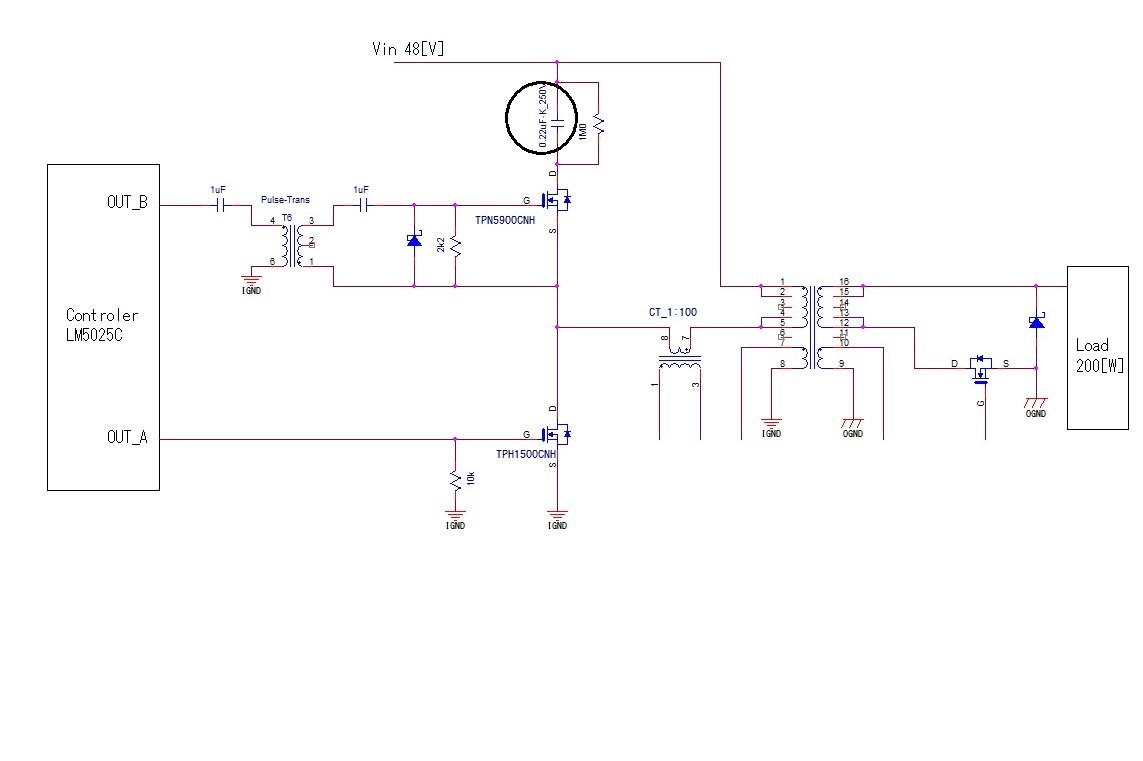Hi, we are developing Active Clamp 48V DC-DC but unstable, especially worry about broken a gate driver when load is haevy.
Attached is simplified primary schematic controller to main transformer, and we began to look at Clamp capacitor.
Now using 0.22uF, is this match to our application? Are there any calculations?
Another conditions are
Primary-inductance of transformer : 5uH
Switching freq. : 200kHz
RT=30kohm
Your prompt reply is highly appreciated.
Best Regards,


